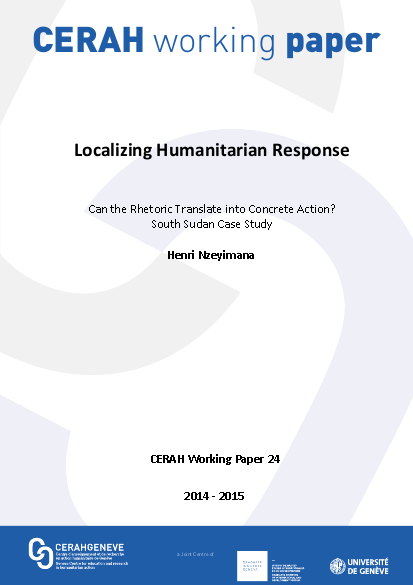
This research focuses on the long standing question of capacity development/strengthening for local and national actors so as to assume leadership and management of humanitarian response. Research findings prove that this localization process remains a rhetoric owing to multiple factors including humanitarian funding that is short-term, inaccessible in most parts to local actors and often serves to advance donor priorities.
Other challenges include humanitarian coordination which prioritizes UN agencies and international NGOS and sideline local actors; a narrow focus of capacity development aimed at INGO performance and accountability for continued donor funding and asymmetrical power relationship between local actors and international agencies. South Sudan case study reveals that in addition to the above-mentioned challenges, the rhetoric and reality gap is founded mainly on the fact that the humanitarian question in South Sudan is much more developmental and embedded in poor local governance and ill-targeted international assistance.
Using evidence from literature and data from interviews, the research concludes with an analytical framework of fundamental changes needed to achieve devolution of humanitarian response in South Sudan. This fundamental change passes by an inward-looking perspective to build on existing indigenous capacities and resources so as to shift from supply to demand- driven humanitarian response.